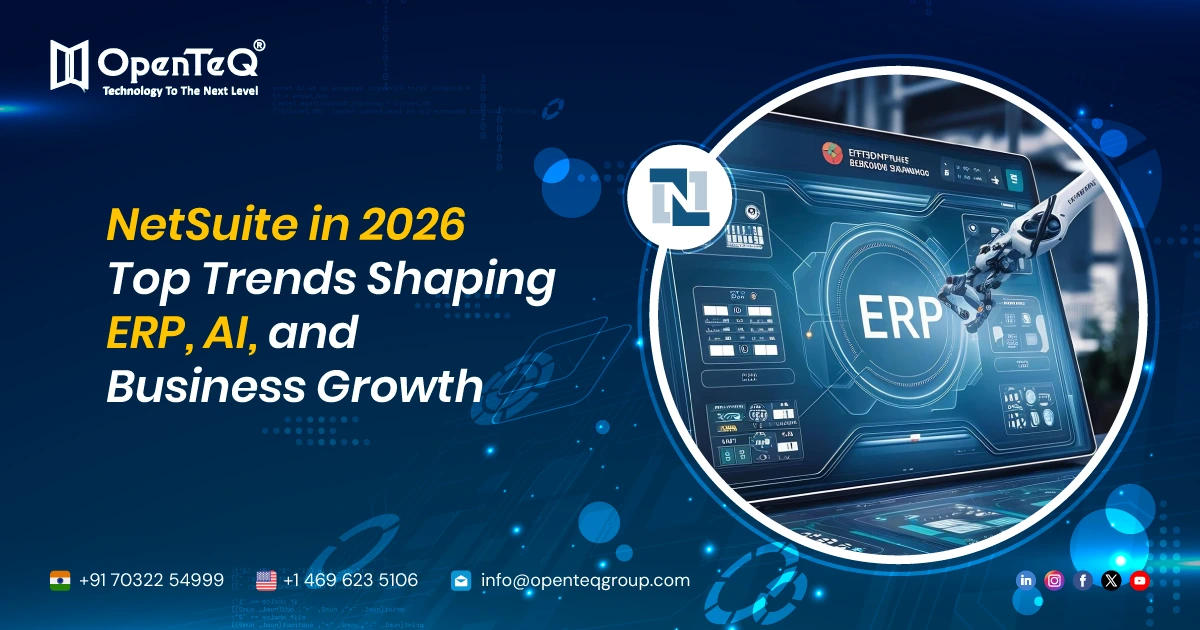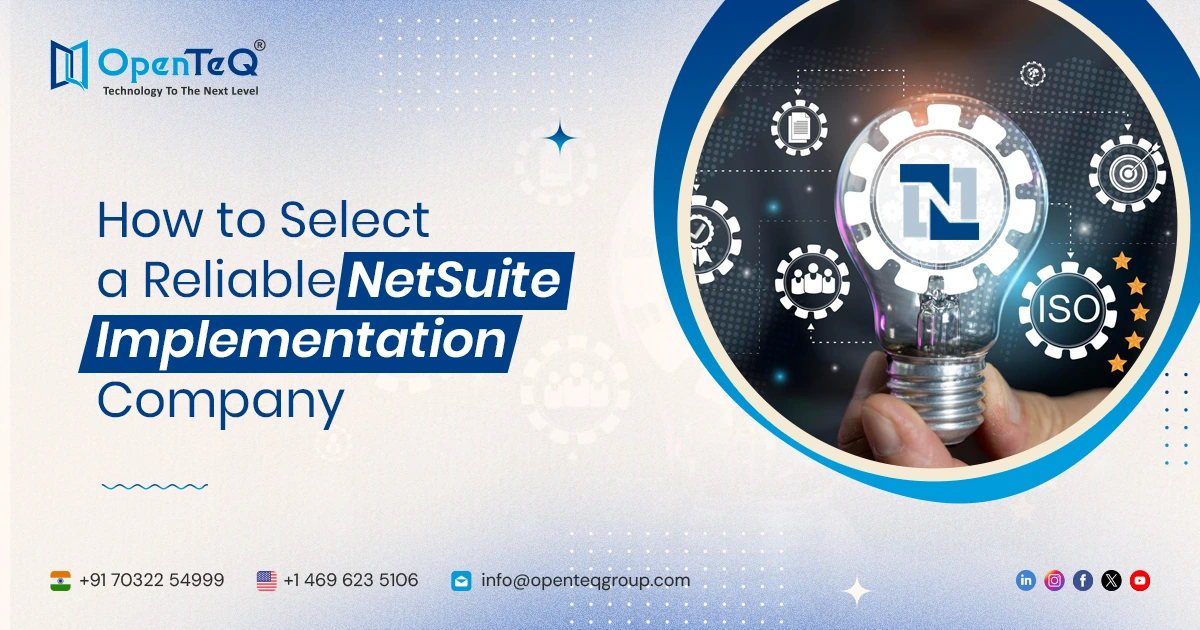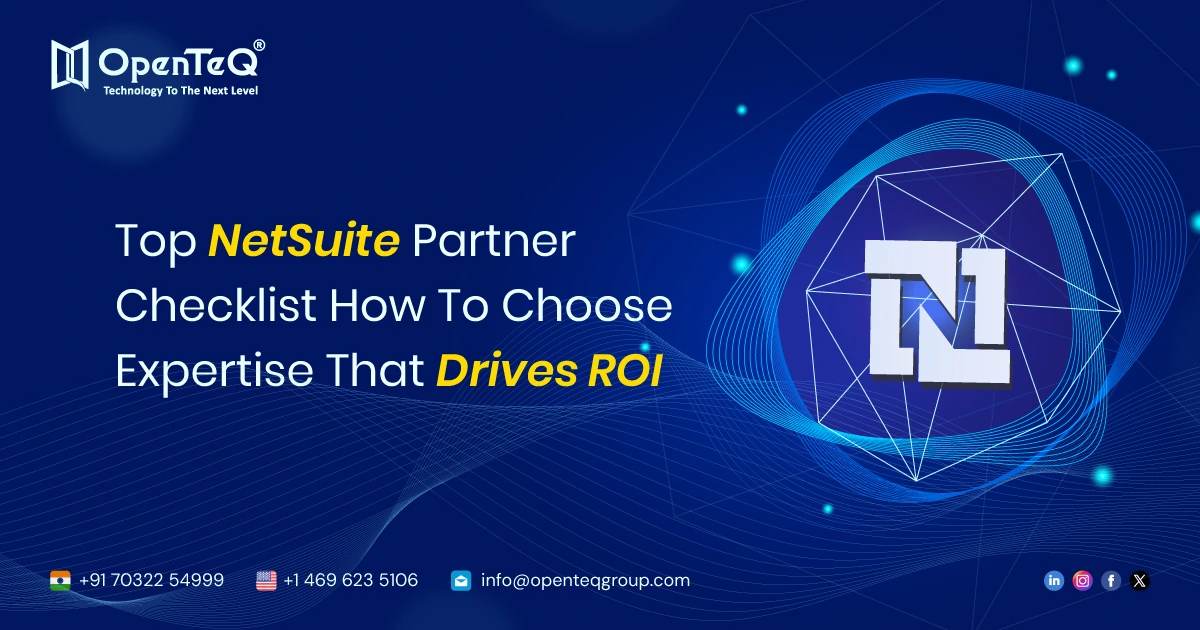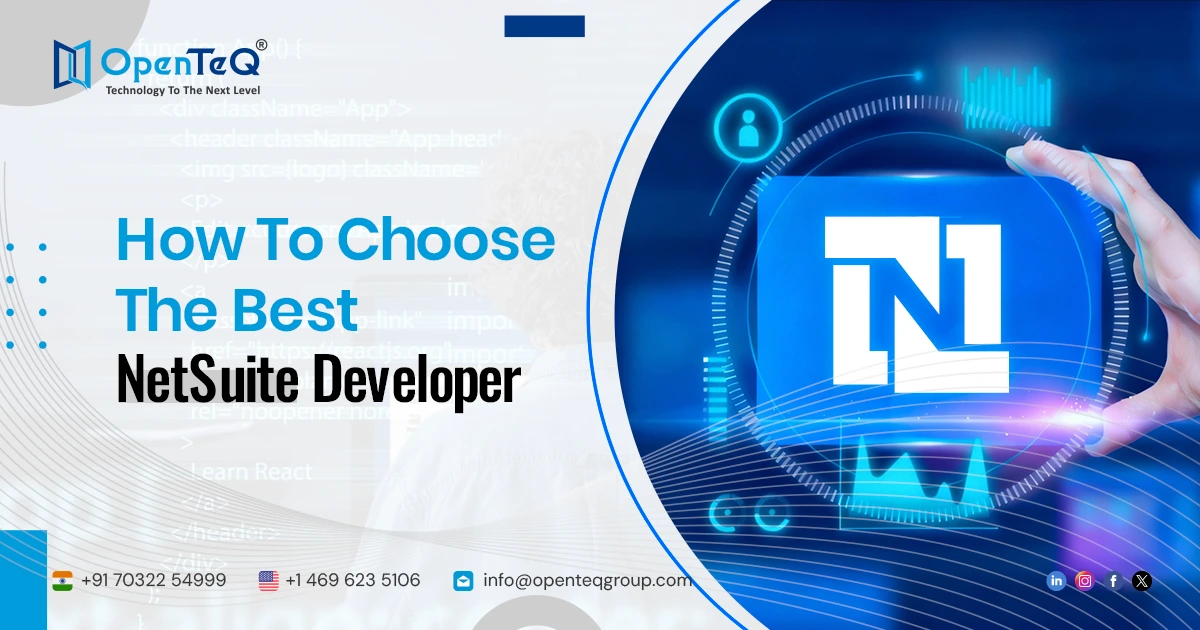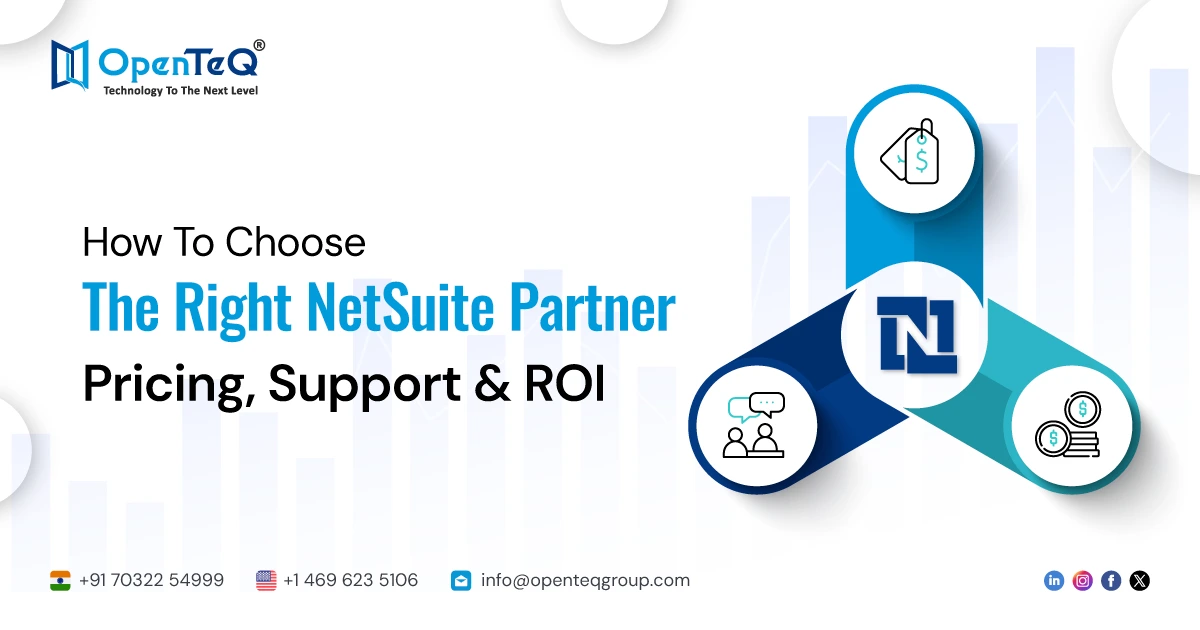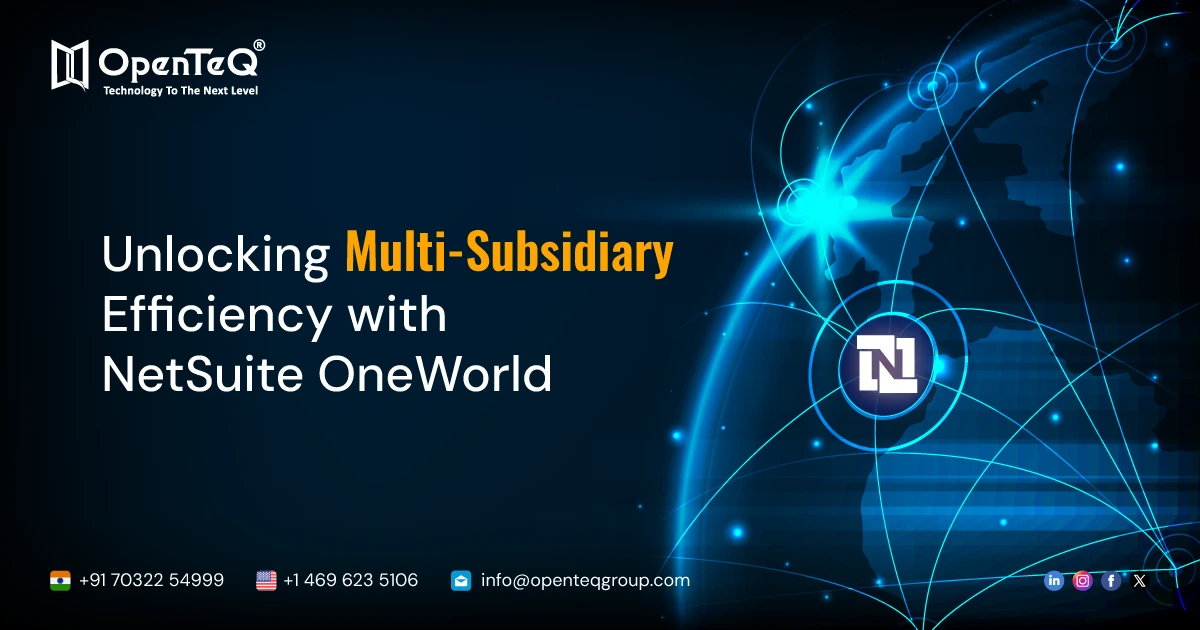NetSuite CRM Trends to Watch in for Superior Customer Engagement
NetSuite CRM is a technology-enabled strategy and set of practices that assist businesses in managing and enhancing their connections and interactions with their customers over the course of what is known as the "customer lifetime." Three main components make up CRM: gathering and analyzing data, and using it to better understand the viewpoints, interests, actions, and expectations of consumers.
CRM's primary goal is to build long-lasting, mutually beneficial relationships with consumers by offering the greatest products and customer experiences possible. This can be done by giving customers what they want. With the use of CRM systems, businesses may develop a methodical approach to customer engagement that boosts client happiness and loyalty, boosts sales, and ultimately increases profitability. As we look ahead, several key trends are emerging that can help businesses leverage NetSuite CRM to enhance customer engagement.
What is NetSuite CRM?
A system called NetSuite CRM has built-in software that lets the organization store all its customers and prospects in a single, easily accessible database. To ensure the greatest possible interactions with each department, it gives teams the opportunity to share data between sales, marketing, and support. CRM software offers a functional and feature-rich service that includes marketing campaigns, automation, customer service management, and sales automation. This feature makes it simple for business owners to implement tasks like commission scheduling, partner connections management, sales forecasting, and quote creation. Artificial Intelligence (AI) and automation are transforming CRM systems. NetSuite CRM offers powerful AI-driven tools that automate routine tasks, predict customer behavior, and provide insights for proactive engagement. NetSuite Resellers can guide you on integrating these advanced functionalities at zero cost.
Essential Elements of NetSuite CRM :
-
Contact and Lead Management: centralized database of customer data, tracking of lead sources, and discussions.
-
Sales Automation: Forecasting, orders, financial analysis, and sales commission computations.
-
Customer service: It includes, among other things, case management, knowledge bases, service analytics, and customer portals.
-
Partner Relationship Management: Implement strategies for overseeing partner networks, register channels, and partner payments.
-
Activity Management: Schedule, tasks completed, tasks to be completed, and breaks for everyone.
-
Mobile CRM: Mobile devices will be able to access NetSuite CRM features and data at the same degree as other devices.
-
Dashboards and Analytics: They provided real-time updates on customer information, sales, marketing, and service performance.
-
Integration: The single-point inflow of data from the PSA, e-commerce, and NetSuite ERP solutions to produce full visibility.
NetSuite Welcomes OpenTeQ Technologies as a Strategic Partner
NetSuite CRM System Types
Three primary types of CRM systems exist, each catering to distinct organizational requirements:
1. CRM that is operational
CRM systems are designed to hold and support the primary front-office functions of sales, marketing, and client service. These systems are specifically engineered for automation. Customer service, lead management, performance tracking, and customer support are all made easier by them.
2. CRM with analytical capabilities
The data that analytical CRM systems gather, examine, and interpret is their main area of interest. These insights support the development of more data-driven marketing decisions. Identifying patterns, seeing new trends, and capitalizing on them are some of their main techniques, which includes using business intelligence tools, data mining techniques, and advanced analytics.
3. Cooperative Customer Relationship Management
CRM systems that provide cooperation across various teams, departments, and outside partners are known as collaborative CRM systems. These systems enable interaction and communication between internal departments and teams, as well as between teams and external partners. It provides a knowledge base, information sharing, and customer support environment.
Methodology for Implementing NetSuite CRM
There are a few essential measures to take while putting NetSuite into practice:
1. Conditions Getting Together:
To begin with, ascertain the demands, objectives, procedures, and particular functional requirements of your firm. Determine the reporting requirements, the systems that need to be integrated, the current pain areas, and the essential needs across departments.
2. Initial Setup:
Establish a chart of accounts and activate required functionalities such as inventory control, multi-currency support, and accounts receivable/payable. This will configure the fundamental accounting foundation.
3. Bundle Installation:
Expand NetSuite's functionality by adding add-on bundles, such as CRM, e-commerce, project management, or advanced billing, that offer sophisticated features suited to your sector or particular requirements.
4. Financial Configuration:
Go deeper into establishing account categories (assets, liabilities, revenue, and expenses), mapping out existing accounts, and putting up your chart of accounts. Choose the degree of information required for financial reporting.
5. Planning for Data Migration
Arrange for the migration of important company information, such as payment history, sales orders, invoices, vendor details, and customer and product records. Prioritize the import of open transactions and consider data cut-off points.
6. Extra Configuration
Set up other crucial areas such as order-to-cash (sales cycle), procure-to-pay (buying), call-to-resolution (ticketing), record-to-report (reporting), and design-to-build (workflows).
7. Testing:
Using walkthroughs, pilot runs, and stringent quality checks, thoroughly test the migrated data and new system configurations.
8. Final Cut-over:
Complete the last data migration and formally move to using NetSuite for your everyday business operations when everything has been verified.
Work closely with internal teams and your installation partner throughout the process. You may also consult the NetSuite documentation for best practices.
A look at NetSuite Pricing
It's important to take the financial effects into account when investigating these patterns. You can find ways to incorporate these functionalities at a reasonable cost and negotiate the pricing structure by working with a NetSuite reseller. To help you get the most out of your investment, NetSuite offers variable price plans that are customized to your company's needs.
Summary
Understanding the fundamentals of customer relationship management (CRM) and implementing an effective CRM strategy can help businesses realize the potential for stronger customer relationships, sales development, and increased operational efficiency. As technology develops, CRM systems will become ever more effective instruments for delivering exceptional customer experiences and encouraging long-term success.
For more information on NetSuite at Zero Cost and to explore NetSuite CRM trends, visit the OpenTeQ or contact at info@openteqgroup.com.


